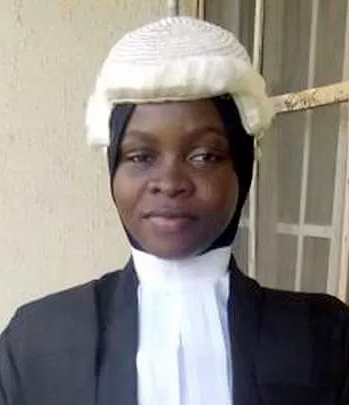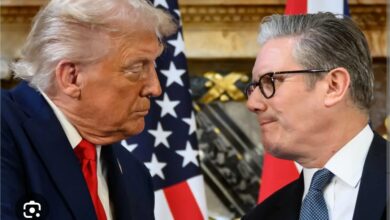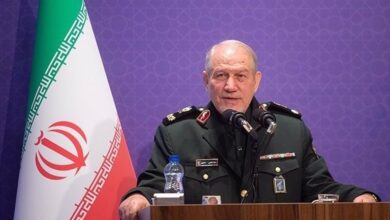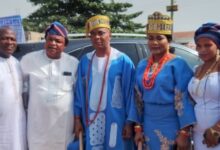Postponed Public Hearing: Chance to treat Hijab issues globally – MURIC

By Kemi Kasumu, General Editor
“In summary, MURIC pushed on, “we demand a review of the code of dressing in the Nigerian Law School as it affects the ‘manifestation’ of religious beliefs and a review of the dress code in all professions and educational institutions where uniforms are used such that female Muslims in such professions and institutions can use suitable hijabs along with the uniforms. In addition, we also demand that the House of Representatives declares illegal, unlawful, unconstitutional and therefore judiciable any order or request by any Nigerian official that a Muslim woman should remove her hijab.”
The Committee on Judiciary and Justice of the House of Representatives, Monday morning, announced the postponement of the planned open hearing of the call to bar saga of Amasa Firdaus.
Rather than feeling disappointed by the postponement, the Muslim Rights Concerns (MURIC) says it has shown understanding for the reason given for the postponement, which, according to it, was to afford more time to reach all stakeholders.
The DEFENDER had reported Firdaus Amasa was barred from entering the venue of the Nigerian Law School’s Call to Bar ceremony held on Wednesday, 13th December, 2017 on account of her refusal to remove her hijab.
The tornado of hues and cries which greeted the incident led the House of Representatives to direct its Committee on Judiciary and Justice to institute investigations into the matter for which the open hearing was formerly scheduled for Tuesday 6th February, 2018 before the postponement.
But MURIC, in a statement by its Director, Professor Ishaq Akintola, copy of which was sent to The DEFENDER Monday afternoon, said it had no problem with the postponement since it would only afford the “honourable House” the opportunity to carry out holistic x-ray of all issues surrounding the hijab phenomenon in Nigeria as it affects the mass stigmatization of Muslims women.
It however urged the investigations and final decisions of the House Committee to go beyond justice for Firdaus Amasa to include comprehensively areas where hijab-wearing Muslim women are being profiled and persecuted.
The DEFENDER’s reports in recent times had revealed how Christian Association of Nigeria (CAN) had been responsible for many of the problems of Muslims particularly with regard to how hijab-wearing women have been persecuted in this country.
Failure to arrest leaders of the group, who had indicated they actually played roles in the persecution of Muslims even after Osun and Lagos states’ had defeated them in court up to Supreme Court, had led to the fear of a writer in one of recent articles published by this online media organisation for President Muhammadu Buhari as 2019 thickens being, according to the article, that Muslims and Northerners of Nigeria might be considering a replacement for the “greatly performing” President for the mere reason that he seemed to be allowing members of his own tribe and religion to be killed and persecuted without help, simply because he wanted to prove a point that he was not a biased person.
The activities of CAN therefore have caused tension in the country as its misrepresentations of facts about occurrences and several provocations of Muslims and Northerners have been zeroed down upon to be the main cause of the challenges in the North and South West of Nigeria.
According to the MURIC’s statement, Professor Akintola noted that this postponement of public hearing by the House Committee will afford the chance to “go a long way in dousing tension and preventing hijab-related religious crisis in this country.”
Immigration Service, INEC also guilty
The Islamic rights group said, “Immigration officials are known to engage in regular stereotyping of Muslims who apply for international passports. They intimidate Muslim women particularly at the point of taking pictures (or ‘capturing’). Hijab-wearing Muslim women are forced to remove their hijabs or ordered to draw their hijab backwards to reveal their ears. The same scenario plays itself out in driving licence, national identity card offices and during registration for elections.”
It continued that, “In the process, thousands of Muslim women have been denied international passports, driving licences and national identity cards while millions have been disenfranchised during elections. It is a case of mass profiling of Muslims. We therefore appeal to the House of Representatives as the voice of the voiceless and the bulwark against oppression and persecution, to take the bull by the horn by criminalizing the obstruction, denial and stigmatisation of female Muslim women in hijab while carrying out their civic responsibilities like obtaining international passport, driving licence, voters’ registration card, etc.
“By the same token, Muslim women who work in uniformed bodies in Nigeria, e.g. the army, police, traffic officials, uniformed voluntary groups, nurses, the National Youth Service Corps (NYSC), students of primary and secondary schools, etc, use uniforms designed by the Christian colonialists. These uniforms should have been reviewed after independence because they only suit Christians. Muslim women are uncomfortable in them. Some of them constitute breaches to Islamic dress code and offend the sensibility of Muslim women who are compelled to wear the uniforms regardless of their inner feeling of resentment.”
In summary, MURIC pushed on, “we demand a review of the code of dressing in the Nigerian Law School as it affects the ‘manifestation’ of religious beliefs and a review of the dress code in all professions and educational institutions where uniforms are used such that female Muslims in such professions and institutions can use suitable hijabs along with the uniforms. In addition, we also demand that the House of Representatives declares illegal, unlawful, unconstitutional and therefore judiciable any order or request by any Nigerian official that a Muslim woman should remove her hijab.”









